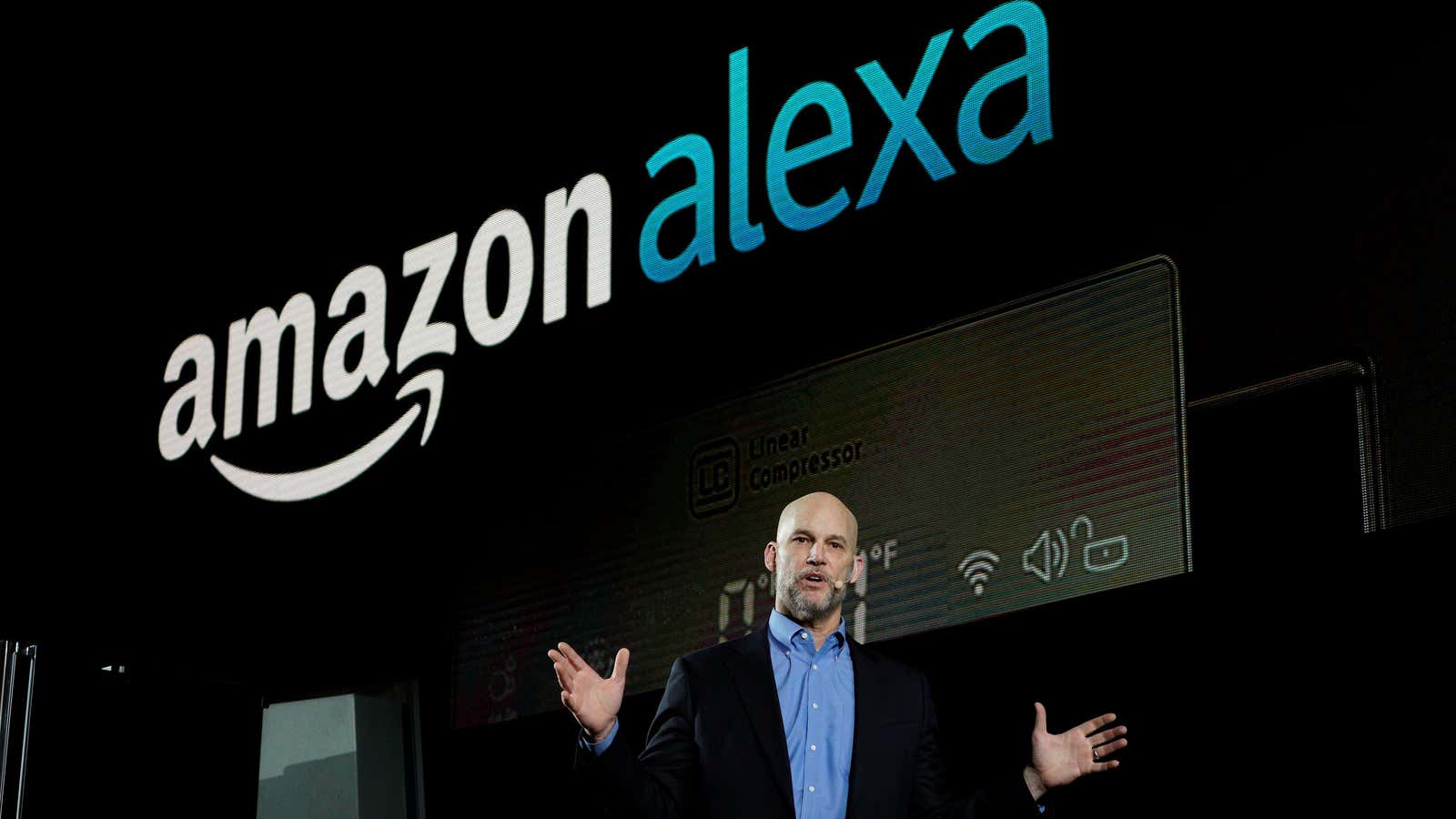A new report from industry analyst Canalys predicts by the end of 2018, over 100 million people will have installed smart speakers. There’s only one thing missing: the world’s most valuable hardware company.
Apple, the company that brought us the iPhone and ushered the world into the smartphone era, has a conspicuously small footprint in voice, which many experts believe to be the next big computing platform. Amazon Echo devices will account for over 50% of smart speakers in 2018, while Google’s Home series will account for 30%. Apple’s HomePod will trail, accounting for a meager 4% of the 2018 base, according to the report.
Though Apple’s Siri was the first mainstream voice assistant to hit the market back in 2011 when it debuted on the iPhone 4S, it was late to the smart-speaker game. The HomePod, Apple’s answer to the Amazon Echo and Google Home, was released in February after missing its expected release before the 2017 holiday season. Amazon’s Echo first went on sale in late 2014, and Home was released in 2016.
However, smart speakers are not the final frontier for voice computing.
“Speakers are the first and most obvious devices to be made ‘smart,'” Saul Carlin, the CEO and co-founder of Scout FM, a podcast radio station for smart speakers, told Quartz. ”But we’re still in the ‘pre-iPhone’ era of voice computing.”
Research suggests that smart speakers are still primarily being used for playing music and asking basic questions. If Apple were to open up its voice platform to developers—much like it did with the iPhone a year after its launch— it may still have time to let its voice be heard. Otherwise, developers will just go where the money is.
